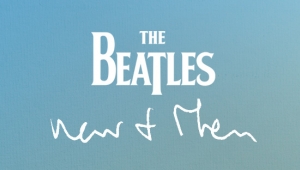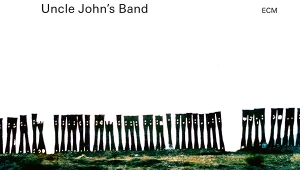| Columns Retired Columns & Blogs |
July 2022 Pop/Rock Record Reviews

Camp Cope: Running with the Hurricane
Run for Cover Records (16/44.1 stream, Qobuz). 2022. Anna Laverty, prod.; Laverty and Joseph Carra, engs.
Performance ****
Sonics ****
Run for Cover Records (16/44.1 stream, Qobuz). 2022. Anna Laverty, prod.; Laverty and Joseph Carra, engs.
Performance ****
Sonics ****
If the theme of Camp Cope's third album, Running with the Hurricane, is personal growth, its core is Georgia Maq's voice—specifically, a new way of using that voice, approaching it as an instrument, applying detailed skill to vocal production. Both her time of self-reflection during COVID lockdowns and the vocal cord surgeries she has needed led her to this new revelation. We all get to reap the benefits.
Besides her magnetic singing, Maq is also the songwriter, pianist, and guitarist for this Melbourne-based trio, with Kelly-Dawn Helmrich on bass and Sarah Thompson on drums, which formed in 2015 and really gained notice in 2018 with their punk-feminist volcano of an album, How to Socialise & Make Friends. Now they're exploring the quieter, folkier elements of their sound—elements that have always been there, ready to reshape the foreground.
Don't mistake gentleness for weakness. There is great strength in these songs, from the geodesic complexity of Maq's voice to Helmrich's imaginative bass lines. The solid foundation of Thompson's drum sound opens vertically to the highest registers on the first track, "Caroline," which plunges us straight into the heart of things with the words "I've been seeing my own death."
Some of the best moments lean toward country. "Blue" is driven by chord progressions strummed on an acoustic guitar, supporting long, aching vocal lines amid a shimmer of brushed cymbals. The wistful waltz rhythm of "The Screaming Planet" lets Maq's voice soar in rich harmonies.
The arrangements rely on several styles. The melody of "Love Like You Do," static like a Smiths song, is enlivened by counterpoint against a perpetually active bass. "Sing Your Heart Out" doesn't even pretend to avoid sentimentality, but it works: Maq sculpts her phrases into something profoundly beautiful. Maybe feeling too much isn't such a bad thing.—Anne E. Johnson
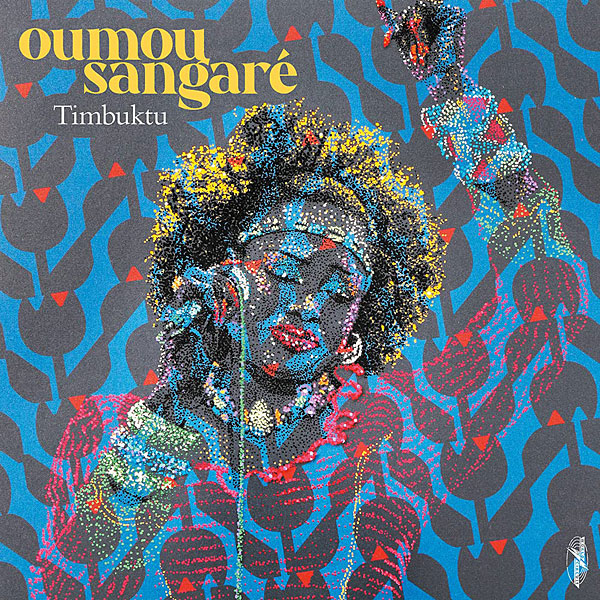
Oumou Sangaré: Timbuktu
World Circuit 752656 (CD). 2022. Oumou Sangaré, Nicolas Quéré, Pascal Danaë, prods.; Oubda Eliézér, Quéré, Mamadou Sidibé, Dick Beetham, engs.
Performance ****½
Sonics *****
As she has since her 1989 debut catapulted her to world-music stardom, Sangaré, the most prominent exponent of the Wassoulou music of southwestern Mali, blends traditional and modern influences on her latest release, and with more sophistication than ever before. The songs, most of which she wrote while living in Baltimore during COVID lockdown, fit socially uplifting lyrics in the Wassoulou language to sweetly melancholic melodies in the pentatonic minor mode, giving the music a bluesy cast.
Recorded in Baltimore, Paris, Bamako, and Ouagadougou (the capitals of Mali and Burkina Faso), Timbuktu inverweaves different takes from far-flung studios—lead vocals and responsive choruses, Western and African string, keyboard and percussion instruments—to striking effect. Sangaré's collaborators include Mali's Mamadou Sidibé on the kora-like ngoni, Central African singer Emma Lamadji, French drummer/percussionist Baptiste Brondy, bassist Laurent Vernerey, and multi-instrumentalists Pascal Danaë and Nicolas Quéré.
Sangaré sings the praises of the Wassoulou people and the city of Timbuktu, encourages women to be strong, and denounces war, all to buoyant melodic strains that ride propulsively vamping riffs. Other songs are more personal: on "Dily Oumou," she tells herself not to pay attention to gossip; on "Sarama," she advises others not to envy her; and on "Kanou," she declares that "nothing compares to love." The music is uplifting even when sorrowful, as on "Demissimw," where she laments the sufferings of mothers and children.
There's a similarity among the tracks, with their repeating pentatonic figures, but unusual timbral touches, such as Pascal Danaë's slide guitar on the title track and Nicolas Quéré's clarinet on "Gniani Sara," compensate for a limited harmonic palette. The effect is entrancing.—Larry Birnbaum
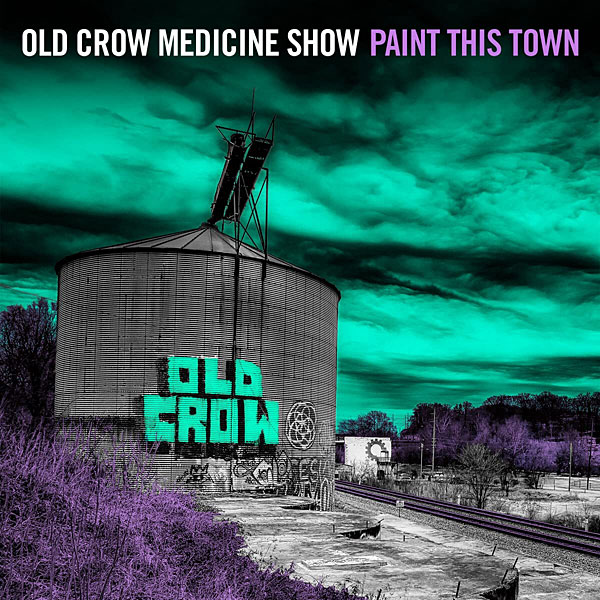
Old Crow Medicine Show: Paint This Town
ATO Records ATO0602 (CD). 2022. Matt Ross-Spang and Old Crow Medicine Show, prods.; Ross-Spang, Morgan Jahnig, engs.
Performance ****
Sonics ***½
Goodness, OCMS is a rock band now. For those unaware of the Nashville-based group's near-quarter-century of inspired music-making, Old Crow Medicine Show dates back to the late '90s, a messy amalgam of 1920s old-timey music (Charlie Poole, Uncle Dave Macon, etc.) and punk attitude and energy, by way of frontman Ketch Secor's formative immersion in Bob Dylan. Along the way, the essentially uncategorizable band has gained and lost untold members, been inducted into the Grand Ole Opry, won a Best Folk Album Grammy (in 2015, for Remedy), and, by fits and starts, acquired a harder edge, tighter feel, fuller bottom, and, finally, with this album, an honest-to-God professional drummer. Paint This Town, OCMS's 14th album, is its best yet, which is saying something.
Throughout, one feels the opposing tugs within Ketch Secor of his love for, and rage against, his native South. The only original bandmember left, Secor plays several instruments (chiefly fiddle and harmonica), writes grade-A songs, and has undeniable charisma. His marriage, to novelist Lydia Peelle, has evidently come undone, and "Bombs Away" (vituperative), "Honey Chile" (forlorn), and "Reasons to Run" (borderline maudlin and my fave) evoke marital shipwreck and its aftermath. The rest of the album is about stuff like good outdoor sex ("Lord Willing and the Creek Don't Rise"), teenage rebellion (the title song), a world on the skids ("Gloryland"), and racism, from the Nashville music industry's complicity ("DeFord Rides Again") to a prophet's equal parts heroism and madness (the demonic climax, "John Brown's Dream"). Sonically, I have quibbles: too much echo, especially on vocals, and the clichéd slow-motion-wreck-on-the-highway ending of "Painkiller." No matter. This album has been a long time coming and will be with us still longer.—Tony Scherman
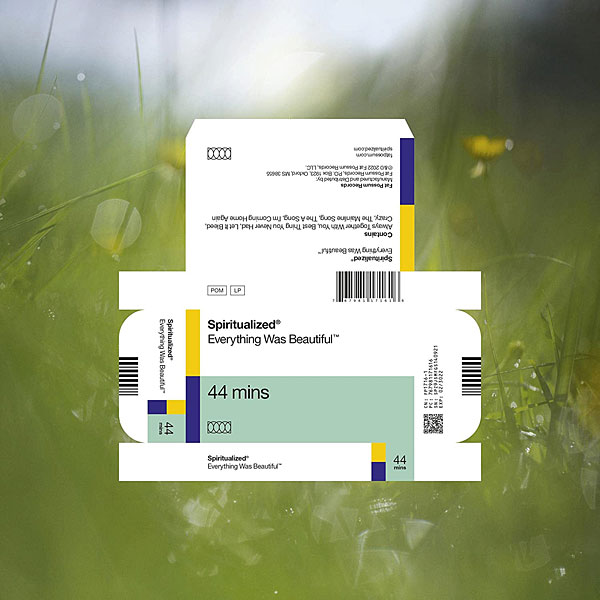
Spiritualized: Everything Was Beautiful
Fat Possum (16/44.1 stream, Qobuz). 2022. Jason Pierce, prod. and eng.
Performance ****
Sonics ****½
When Spiritualized released its 2018 album And Nothing Hurt, leader Jason Pierce, also known as J Spaceman, announced that he was thinking about hanging it up. Too much emotional, mental, and physical toll was exacted in making a Spiritualized album. But the pandemic lockdown energized Pierce, who thrives on solitude. The result is the ninth album in the band's 22-year history and a renewal of the wondrous majesty of their celebrated 1997 tour de force, Ladies and Gentlemen, We Are Floating in Space.
One of the best things about Spiritualized has always been its inherent contradictions. Pierce claims to cherish isolation, yet this album teems with more than 30 musicians—fewer than some earlier records but still a lot. The band's sound is a house of cards, a mix so complex, as Pierce puts it, that "the slightest move would unbalance it." Yet, he claims, what he loves most about rock music is "the simplicity of it." It's appropriate that his music is referred to as both space rock and shoegaze. He's always looking outward and inward at the same time.
The new album's seven tracks represent paradoxes of their own, moving from the nebulous dreampop of "Always Together with You" through guitar-driven psychedelia with a touch of Muscle Shoals–style horns in "Best Thing You Never Had (the D Song)," only to bounce into the country charm of "Crazy," a duet with co-writer Nikki Lane.
"Let It Bleed (For Iggy)" pays tribute to Iggy Pop with R&B smoothness, while "The Mainline Song" builds a city out of synthesizers and train sounds.
At nearly 10 minutes, "I'm Coming Home Again" is the album's gravitational center. It starts low-key and jangly, growing oh so slowly, spiraling outward from a minimalist melody that eventually becomes a dot in a vast sonic galaxy.—Anne E. Johnson
- Log in or register to post comments













